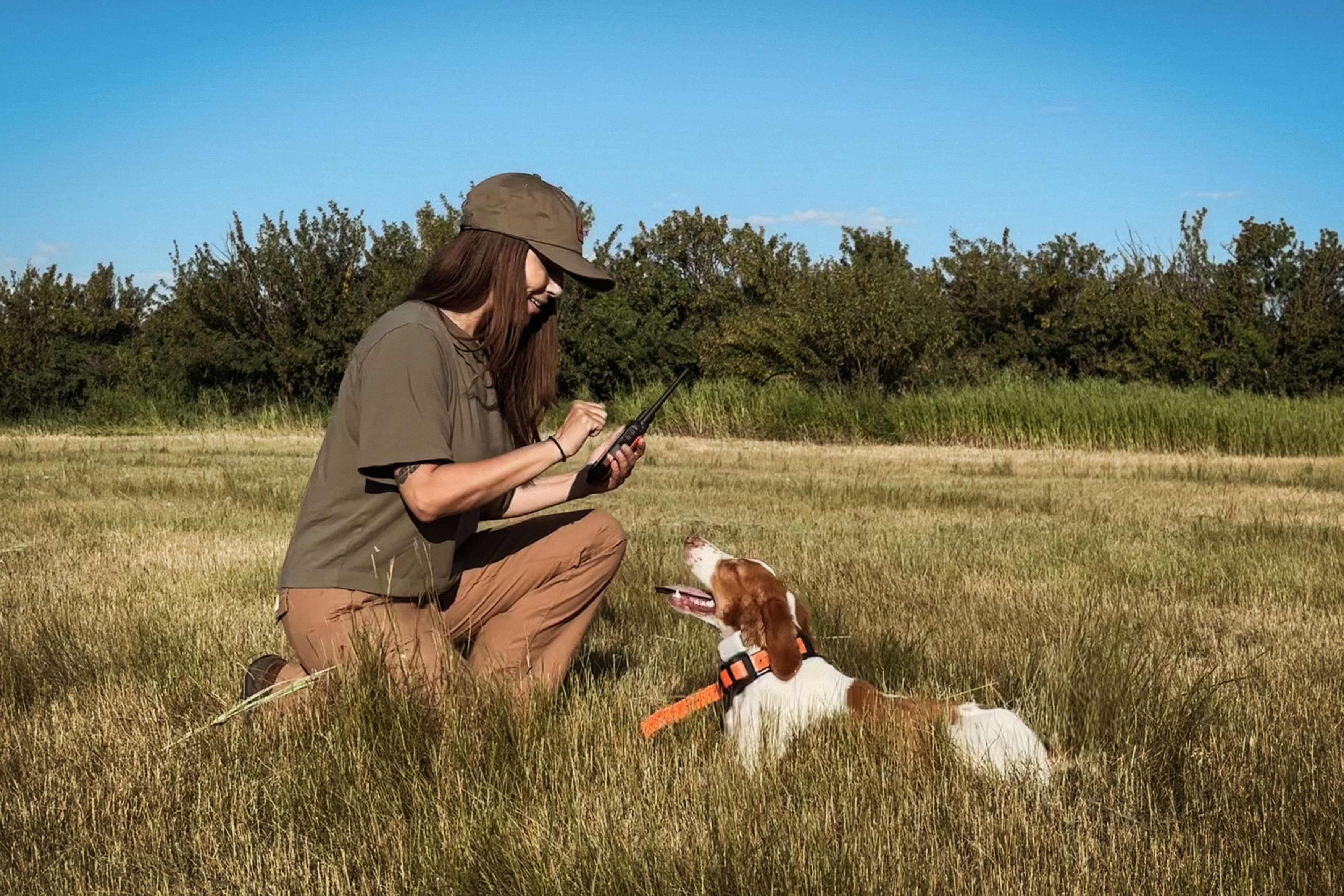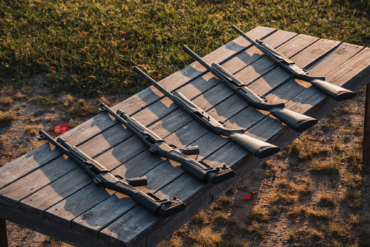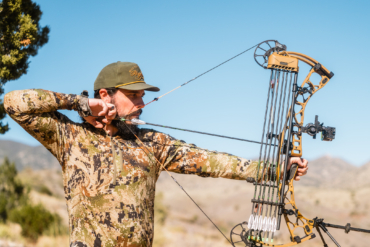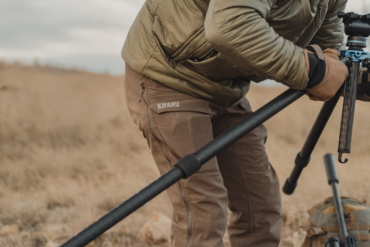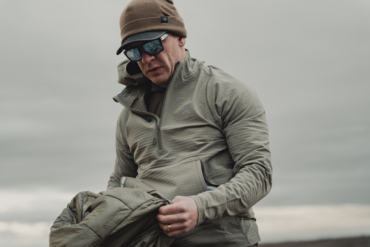Sporting dogs are invaluable partners to hunters while tracking, retrieving, and flushing out game. But dogs aren’t born with these skills, so the journey from curious pup to loyal hunting beast can be challenging.
That’s why proper nutrition is essential for optimizing performance, stamina, and overall health. Hunters who provide their dogs with a well-balanced diet will see legitimate benefits and improved performance in the field.
With that in mind, it’s important to seek out dog food that provides the right balance of energy and nutrients — like Eukanuba’s Puppy Pro. Packed with an engineered balance of protein and fat and fortified with a heavy helping of amino acids, Eukanuba Puppy Pro supports your pup’s rambunctious brain on their path to maturity.
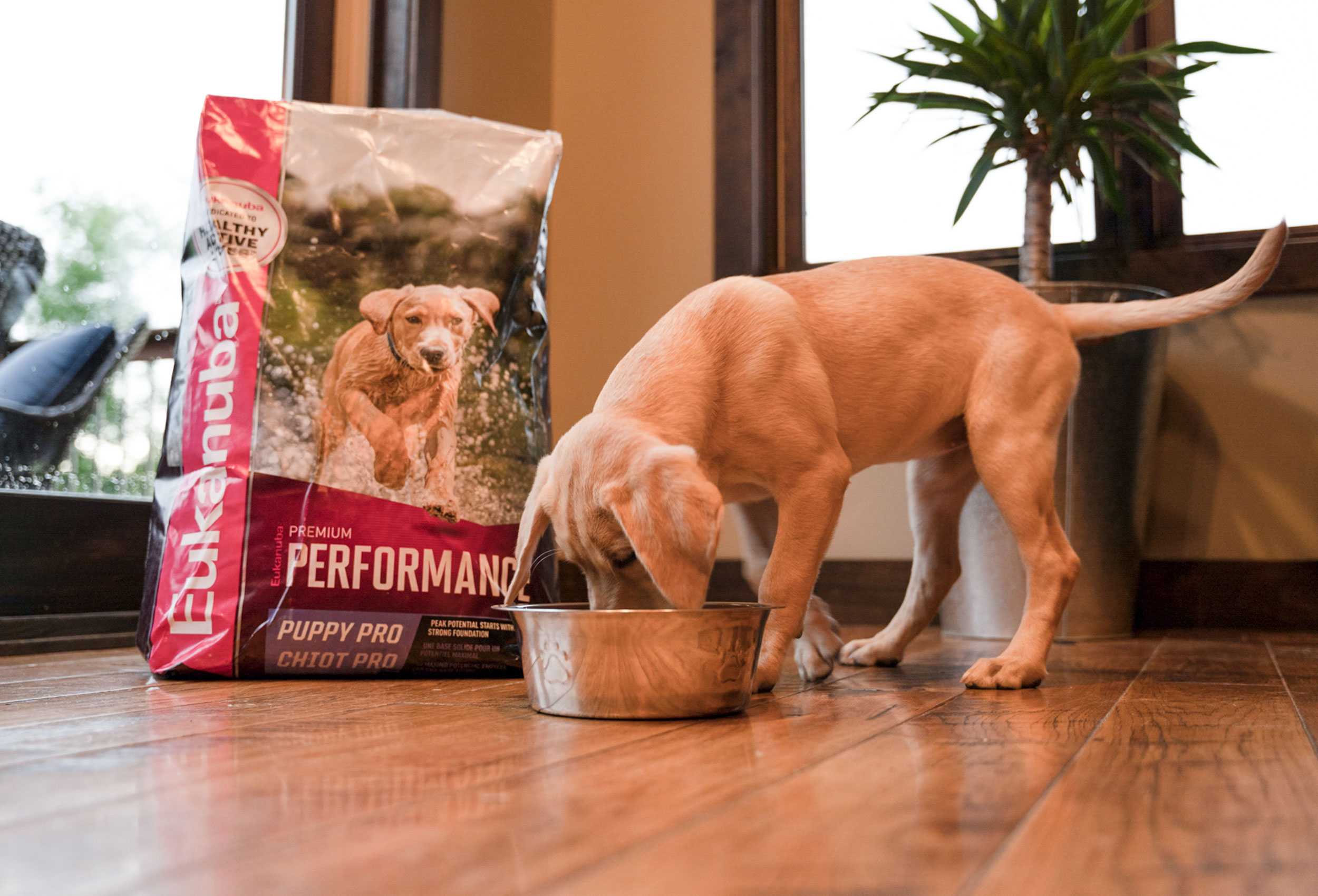
Rachelle Schrute, GearJunkie’s resident Hunt & Fish editor, understands these needs. As an owner and trainer of sporting dogs, Schrute has turned to Eukanuba to give her pups the nutrition they need to excel.
Beyond nutrition, it’s fair to say that training any dog — especially a sporting pup — can have its ups and downs. So we sat down with Schrute to go beyond the surface and get her firsthand account of what it takes to train a hunting pup.
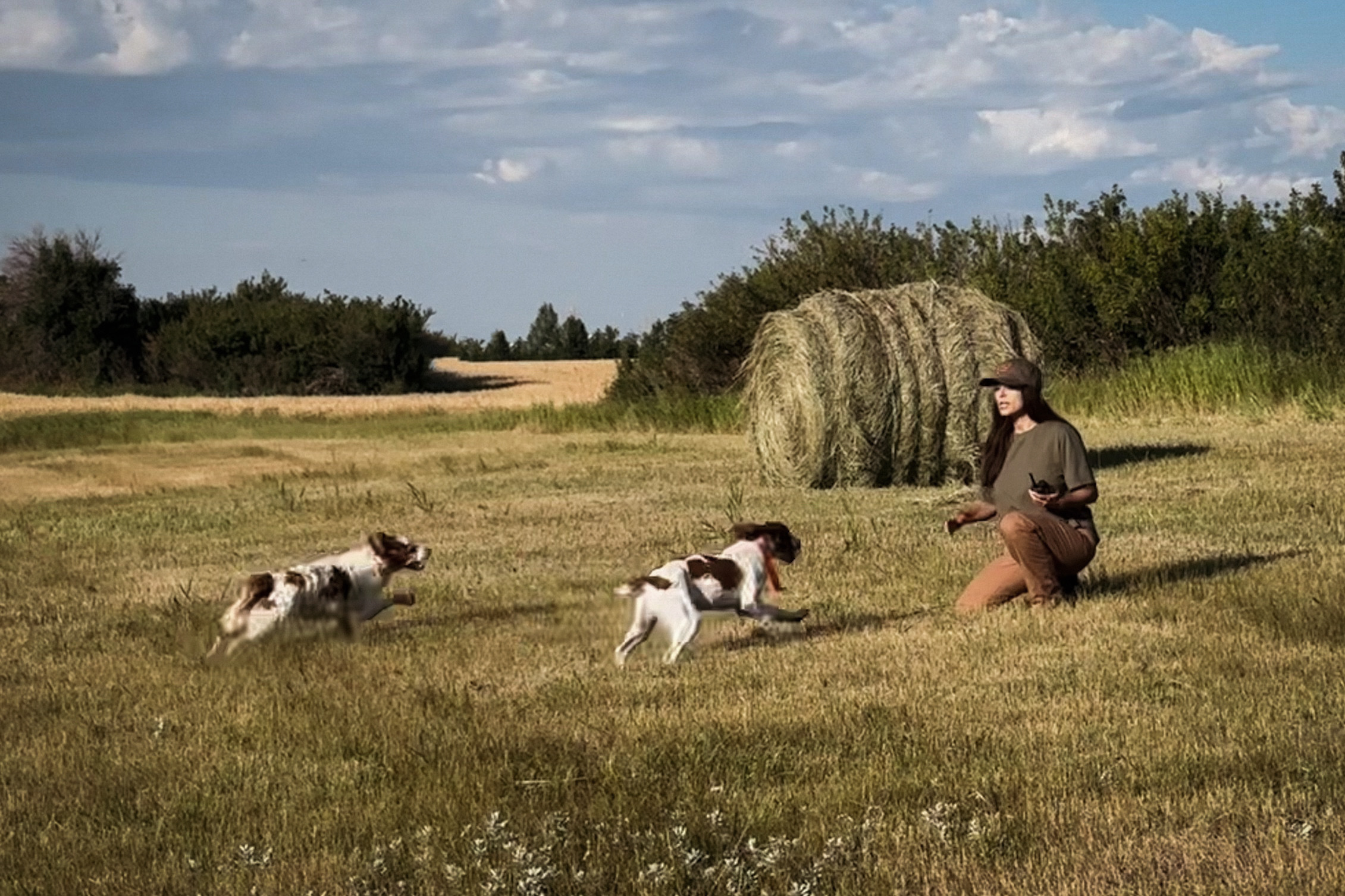
Rachelle Schrute’s Journey With Her Hunting Pup
As hunters and dog trainers, we know what it takes to keep a sporting dog happy and healthy. Over the years, my partner and I have trained Brittanys for upland bird hunting and hounds for bigger game. In both cases, keeping an eye on their diet and nutrition is essential for ensuring peak performance.
Learning obedience and hunt-specific skills are not easy tasks for wild-eyed puppies to master. Providing good nutrition and a healthy diet is a vital part of training your hunting pup because their young mind requires just as much energy as the rest of their body does.
You only have a small window of time when a puppy is young to set the course of their training and begin building your hunting companion. Foods that are nutrient-rich and supplemented with clinically proven DHA will have a direct impact on your puppy’s ability to master tasks and stay focused on them.
Providing a Foundation of Love and Nutrition
In early 2023, we added a new Brittany, Charlie, to our growing family of hunting dogs. She is the first bird dog that I’ve completely trained from day one on my own, so it’s been a learning process for both of us.
I wanted to be intimately involved with her training, and that’s why I decided to dive deep into the process and take it on myself. I feel like you become a better hunter behind a dog that you trained yourself.
From the beginning, Charlie chose me. She was not the dog I was originally considering. The first time I went up to meet the new litter of pups, I kept trying to gain another dog’s attention. Charlie just happened to be the biggest of the litter by a long shot.
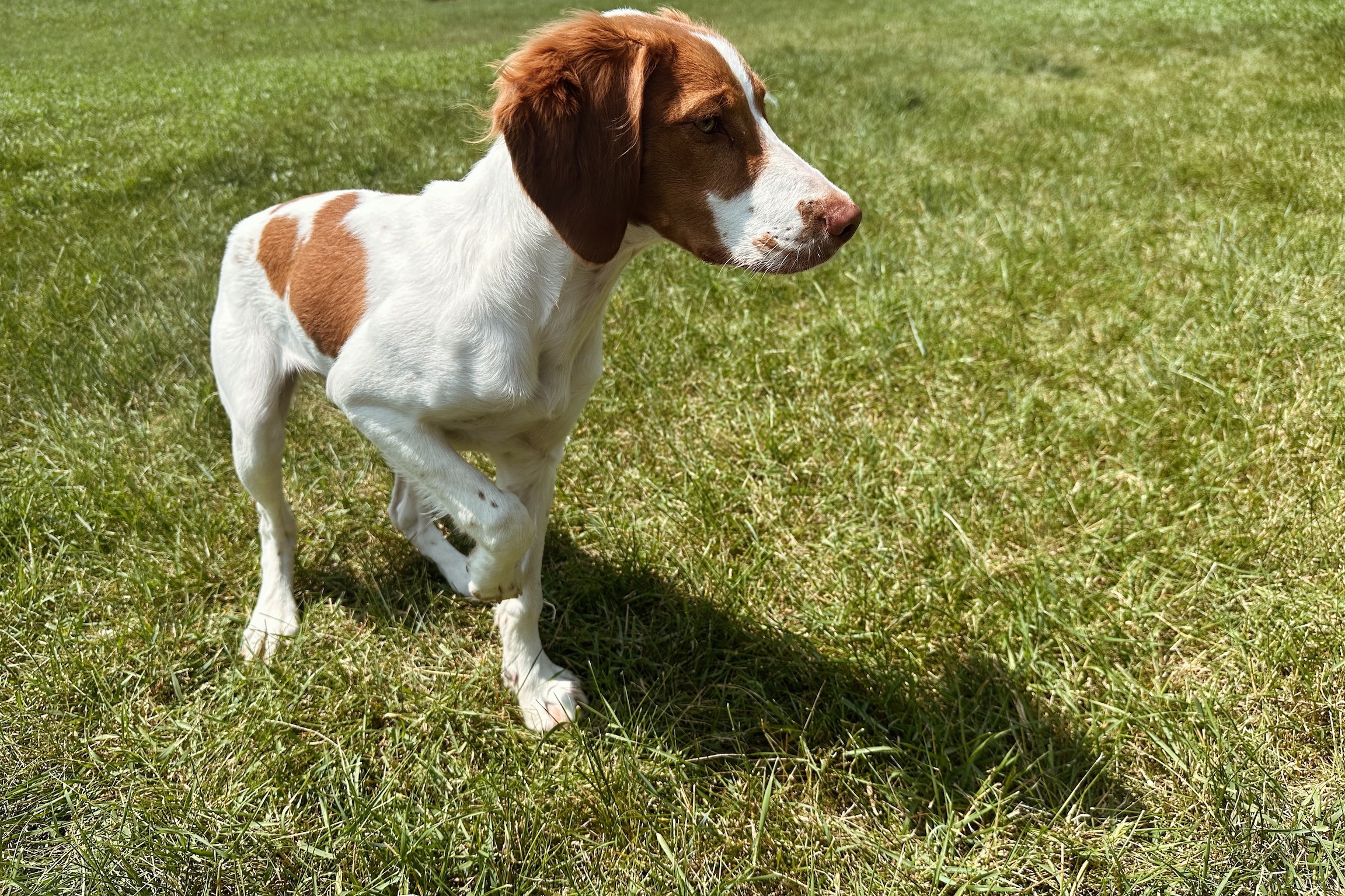
While the others were rambunctious and playing, she sauntered over and sat at my feet. The next time I went up, she ran across the kennel to do the same. She’s been at my feet, attentive, and eager to learn, ever since.
From day one, I wanted to be sure that Charlie was getting her nutritional and supplemental needs met. That meant finding food that supported Charlie’s brain health, her digestive health with high-quality fiber, and had the nutrient density to keep her growing and moving.
The Challenges of Training a Hunting Pup
Even with great nutrition, training a hunting dog — or any dog — is a rollercoaster. There are ebbs and flows with training. Initially, Charlie was hungry to learn. She picked up general obedience commands within a few weeks of being home and was tight with nonverbal hand signals by four months.
Now, we’ve entered the dreaded six-month lull, where she has more energy than brains. In this phase, I always feel it’s best to let them run out their wiggles, be a pup while they have the pep, and slow down on training. For now, we’re on hold with adding any new skills, and we’re focusing on play. It’s good for them and builds a bond between a sporting dog and their hunter.
The most difficult part of training for me is two-fold: First, we have other dogs, and when Charlie is around our older pups, she refuses to mind and refuses to train. She’s got a need to be the center of attention, which is compounded now that she’s outgrown our older dogs. That has led me to separate her more often than not to ensure my focus is on her and her focus on me.
Second, we raise bird dogs while also raising poultry. Suffice it to say, Charlie’s instincts are unstoppable, and we have far fewer eggs because of them. Even the best foods can’t compete with fresh eggs.
Pup Training: A Practice in Patience
A big portion of pushing past regression is time and patience. That brain needs to catch up with those paws, and for most dogs, I think the best thing you can do is let them be little, so to speak.
Building a tight relationship between the hunter and the dog is often a missed step. Fetch, treats, and long walks go a long way to building a bond with a dog. Cuddles will get you even further. I assure you, your pup will be more eager to listen after being loved on.
As with most things, consistency is everything. Charlie’s schedule (and diet) will vary depending on the season. There are days we work every hour from getting out of her kennel in the morning until we kennel back up at night. There are days she naps and plays, and we don’t send a single command her way.
Like us, dogs need days off. I find this to be particularly true when temps rise or fall. Because she’s young, there’s a lot of variability. She will hit the one-year mark in February 2024, and that’s when serious training will really begin. That spring and summer will be filled with all the lessons she’s just too young to pick up on now.
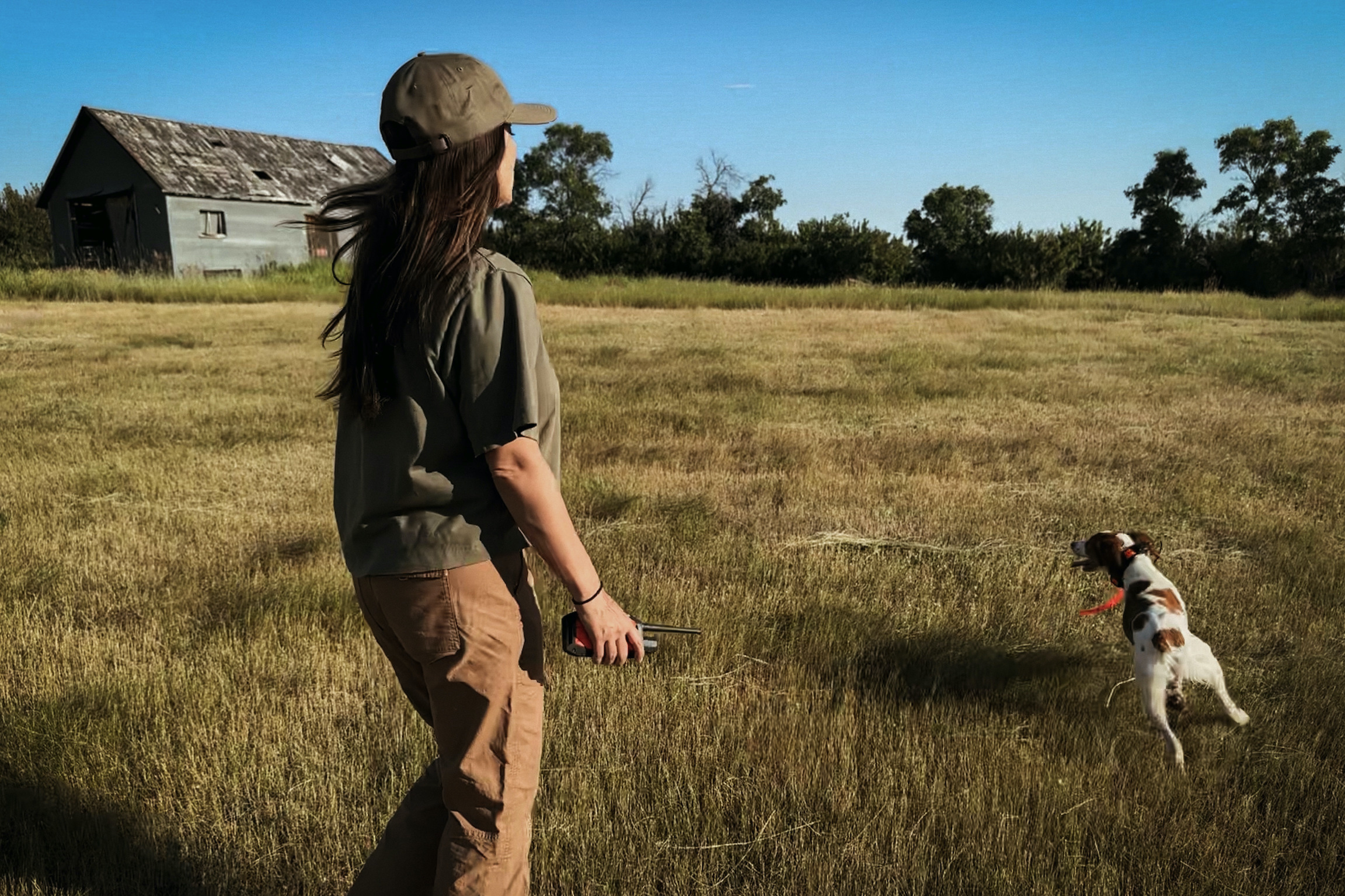
How the Seasons Impact Your Pup’s Diet
Charlie’s dietary needs change depending on the season. We have polar-opposite dogs when it comes to phases of the year. Our hounds need more fuel through their winter hunting season whereas our bird dogs find the winter to be a time of rest. The amount of food our upland dogs consume drops in the winter to ensure they aren’t putting on unnecessary weight.
In the spring, as we get back into training, their feedings increase to keep up with the physical demands. By September, they may be eating double what they ate the previous December.
Also, one of the often overlooked components that really matters to me when training, especially in the summer, is digestive health. Because the heat was particularly brutal this year, keeping Charlie hydrated was key to her development. That involved more than just ensuring access to enough water. Her digestive health was crucial in keeping her hydrated.
All that said, each dog is different, and trainers must pay attention to their energy levels, their body composition, and their performance. Nutritional needs are often disregarded, but proper nutritional balance can mean the difference between a happy, successful bird dog and the contrary.
How to Train (and Love) Your Pup
To begin the process of training a pup for hunting, focus on fundamentals as you would with an everyday pet. Obedience skills like sit, lie down, and stay are always the first tasks to master. From there, additional commands can be introduced slowly as your pup gains fluency in the skills you have already introduced.
It goes without saying: Training is intense (and sometimes frustrating) for the first few years. In that time frame, it’s imperative for your puppy to have a healthy supply of both energy and focus as they master the skills necessary to hunting success.
But it’s not all forward progress. Again, regression is normal. By nature, puppies are wiggly balls of vivacious curiosity, and sometimes I have to accept that Charlie is not going to do what I ask of her — and that’s OK. There’s always tomorrow and the next training session.
But on the flipside, every dog owner either knows or will know the pain of losing a pup. We’ve lost two in the past year, and it’s hard every single time. The older we get, the more aware of time I think we are, and unfortunately, dogs just don’t live long enough.
Though there are joys in training a pup like Charlie as she progresses and matures, there are also stages of mourning. Youth is fleeting, and with every command she masters, another day is gone.
It’s made me more present for her wiggles, her need to play, and her desire to be a nut. Those moments may frustrate some trainers. But I think we’d all be better pet owners, better hunters, and better leaders for our pups if we give into the moments of play. They only last so long.
Why Nutrition Is Important for Your Hunting Pup
As Schrute explained, the risks of depriving your pup of a nutritious diet are real. Improper nutrition can lead to brain fog, fatigue, and even injury. So it’s incredibly important to provide your sporting pup with a nutritious diet that’ll aid in recovery, mental acuity, and digestion.
These dogs, although just pups, are athletes in training — and they require an athlete’s diet. That said, all of the qualities Schrute prioritizes in Charlie’s diet are present in Eukanuba’s Premium Performance Puppy Pro blend.
Eukanuba Premium Performance Puppy Pro Dry Dog Food
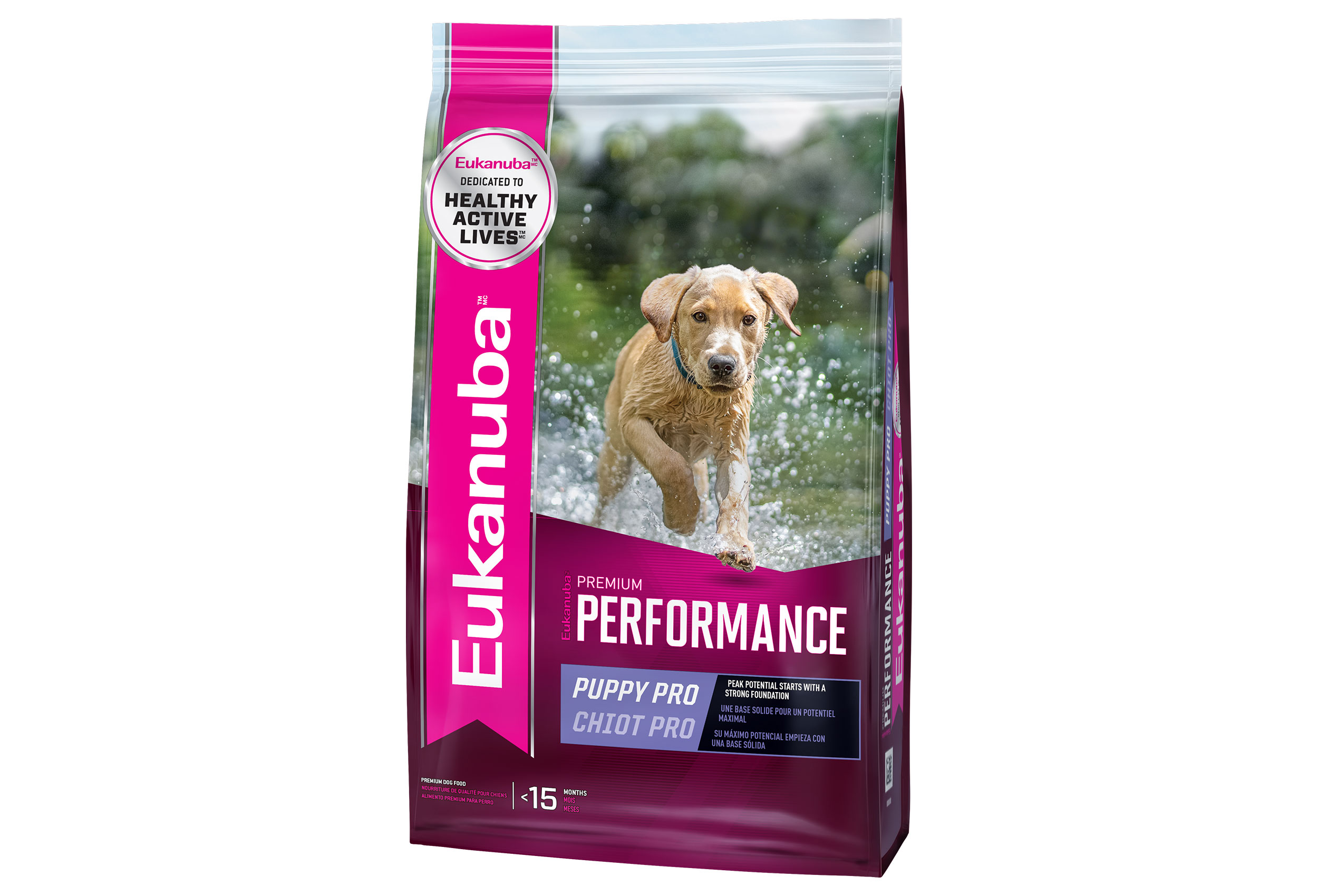
Eukanuba designed its Premium Performance Puppy Pro Dry Dog Food to support healthy brain development with clinically proven DHA levels for a sharp mind and agile body.
Digestion is boosted by a specially engineered complex that ensures proper nutrient absorption, while glucosamine and chondroitin sulfate with EPA support healthy joints for the toughest of training sessions.
Learn More About Puppy Pro
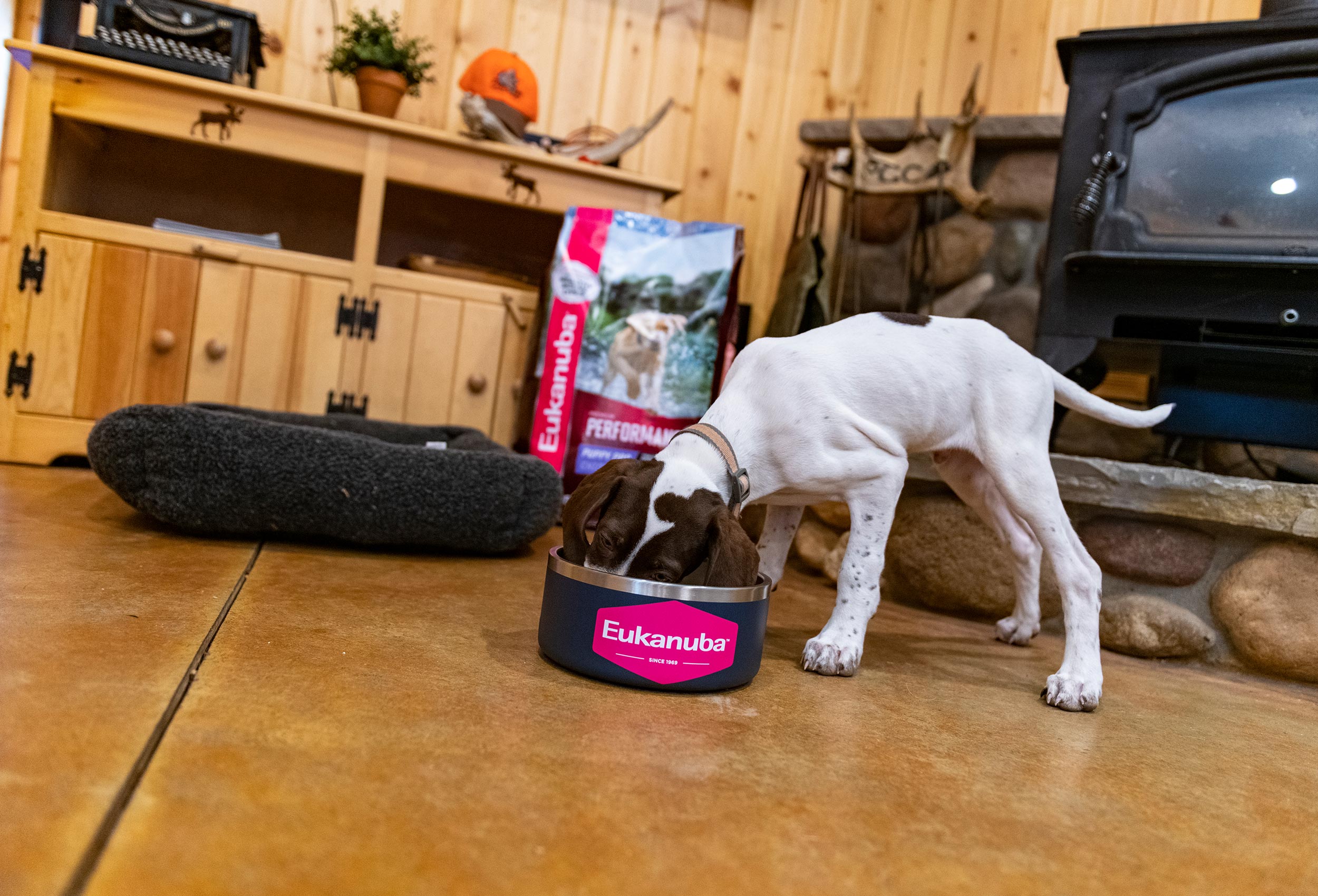
This article is sponsored by Eukanuba. Check out its performance meals and other products online.
